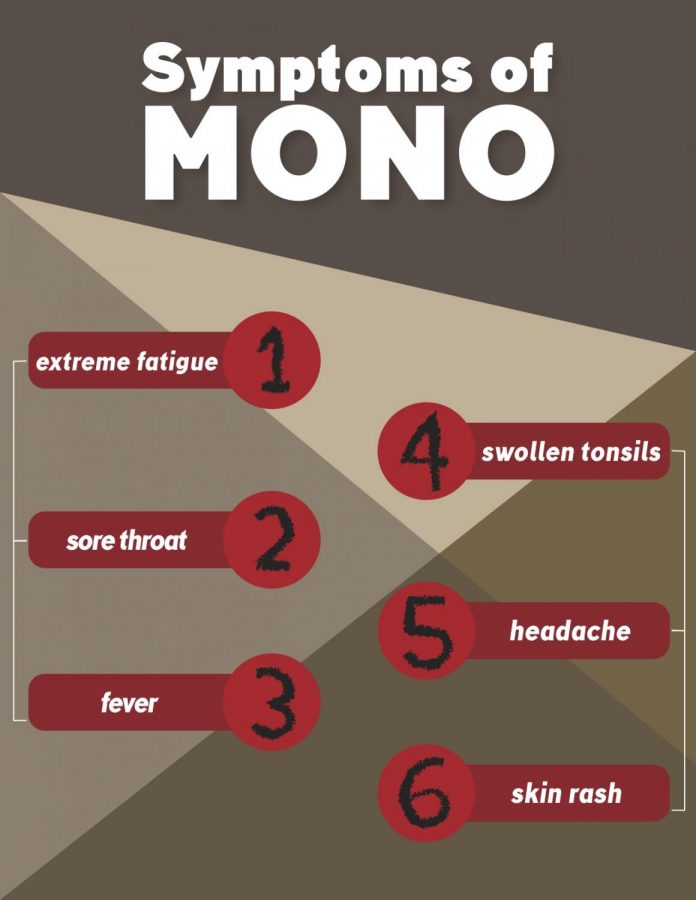Mono Risk on Campus
October 9, 2019
Lakeland athletes were recently emailed information on infectious mononucleosis as the risk of infection has greatly increased among students on campus.
According to Dr. Paul Auwaerter, author of the article, “Patient education: Infectious mononucleosis (mono) in adults and adolescents (Beyond the Basics),” infectious mononucleosis (mono) is an infection caused by the Epstein-Barr virus (EBV), a virus of the herpes family.
Mono gets its nickname “the kissing disease” from the fact that EBV is most commonly spread from person to person through contact with saliva. The sharing of eating utensils or drinking glasses are a few other ways one may contract the virus. It can also be spread through other bodily fluids, though it is unlikely.
People often contract EBV as young children, but do not develop symptoms. Symptoms are more commonly experienced in those first infected during adolescents or adulthood. Symptoms include fever, sore throat, muscle aches, enlarged lymph nodes in the neck, and fatigue.
In some cases, mono can affect a person’s spleen and cause it to become enlarged. If this happens, doctors recommend avoiding contact sports and heavy lifting. This is to reduce the chance of a rupture of the spleen. Generally, participation in these activities is allowed after three or four works.
The three actions a person can take to treat their symptoms are get a lot of rest, take acetaminophen or ibuprofen for the fever, sore throat, or muscle aches, and drink plenty of fluids.
A person with mono may not begin to feel better for at least a week or two. The best way to prevent infection is to avoid the sharing of saliva, as this is often how it is spread. From “How to Prevent Mononucleosis,” eating healthy, exercising, getting enough sleep, and washing your hands will help lessen the chance of contracting mono, as well.
For more information, students can meet with Michelle Doers, the on-campus physician assistant from Aurora Health Care. She is located in the Health and Counseling Center on the ground floor of Brotz across from campus security. She can also be contacted by phone. Her number is (920)-565-1000 ext. 2385.


